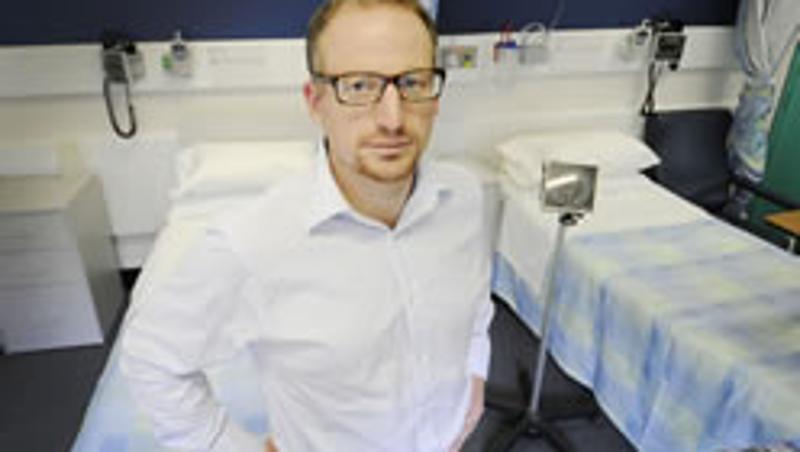
Practical research focused on improving the delivery of health services can save more lives and money than pure science that focuses on chemistry and medical compounds, according to the head of a new health innovation centre officially launched in Brisbane today.
To prove his point, Professor Nicholas Graves, who heads the newly launched Australian Centre for Health Services Innovation, outlined six straight forward, evidence-based innovations that could save lives and billions of dollars.
Better hospital discharge planning, coated catheters in intensive care, streamlined follow up for hip replacement patients, better prices for generic medicines, more efficient airflow in operating theatres and the use of simpler products for blood transfusions are all innovations identified by health services research that could help free up billions of dollars of precious health resources while helping Australians to live longer.
"At a time when our health system is under more pressure than ever before, surely it makes sense to focus our research efforts on trying to find practical, tangible, immediate efficiencies that focus on health service providers," said Professor Graves.
"The long term lure of trying to find 'miracle cures' for debilitating diseases will always be there, but surely this needs to be balanced against the need to identify immediate improvements in the way we go about delivering better health to Australians here and now."
The Australian Centre for Health Services Innovation has been established via an agreement between Queensland Health, the Royal Brisbane and Women's Hospital and the Queensland University of Technology. It is charged with delivering solutions to Australia's key health service challenges through better research.
Queensland researcher Kathryn Plonka is being supported by the Centre for Health Services Innovation to investigate the cost effectiveness of home visits and telephone contact to prevent early childhood dental infections.
Her research has found that a preventive program of telephone contact supplemented by occasional home visits was highly effective in reducing the prevalence of early childhood caries from 23 per cent to between two and seven per cent.
Ms Plonka is now moving on to examine whether the program can deliver these benefits while actually costing less than the current approach.
"These are exactly the kind of questions that our Centre for Health Services Innovation is focused on," said Professor Graves.
"They are practical questions about saving money and improving health outcomes. Improving dental health in Australian children is an important topic in the light of recent policy announcements on dental care.
Professor Graves is keen to emphasise the contrast with clinical research. "Clinical researchers face fundamental challenges, some of which take decades to solve. Our research programs focus on questions about how we can deliver better health at lower or similar cost to Australians immediately."
About the Australian Centre for Health Services Innovation
The Australian Centre for Health Services Innovation (AusHSI) has been established to address health system challenges with multidisciplinary research teams and clinical engagement. AusHSI will encourage Queensland-based health services professionals to do research in partnership with academics, and to disseminate to policy makers and politicians.
AusHSI will fund projects that improve health services, offer a range of training and skills development, and undertake consulting and advisory services that complement our mission, driving knowledge translation to improve decision making.
For further information or to arrange an interview please contact:
Rose Trapnell, QUT media officer, 07 3138 2361 or rose.trapnell@qut.edu.au
Palin Communications on 02 9412 2255 or Martin Palin 0418 419 258, George Anderson 0404 855 758, Ishtar Schneider 0422 944 023.




